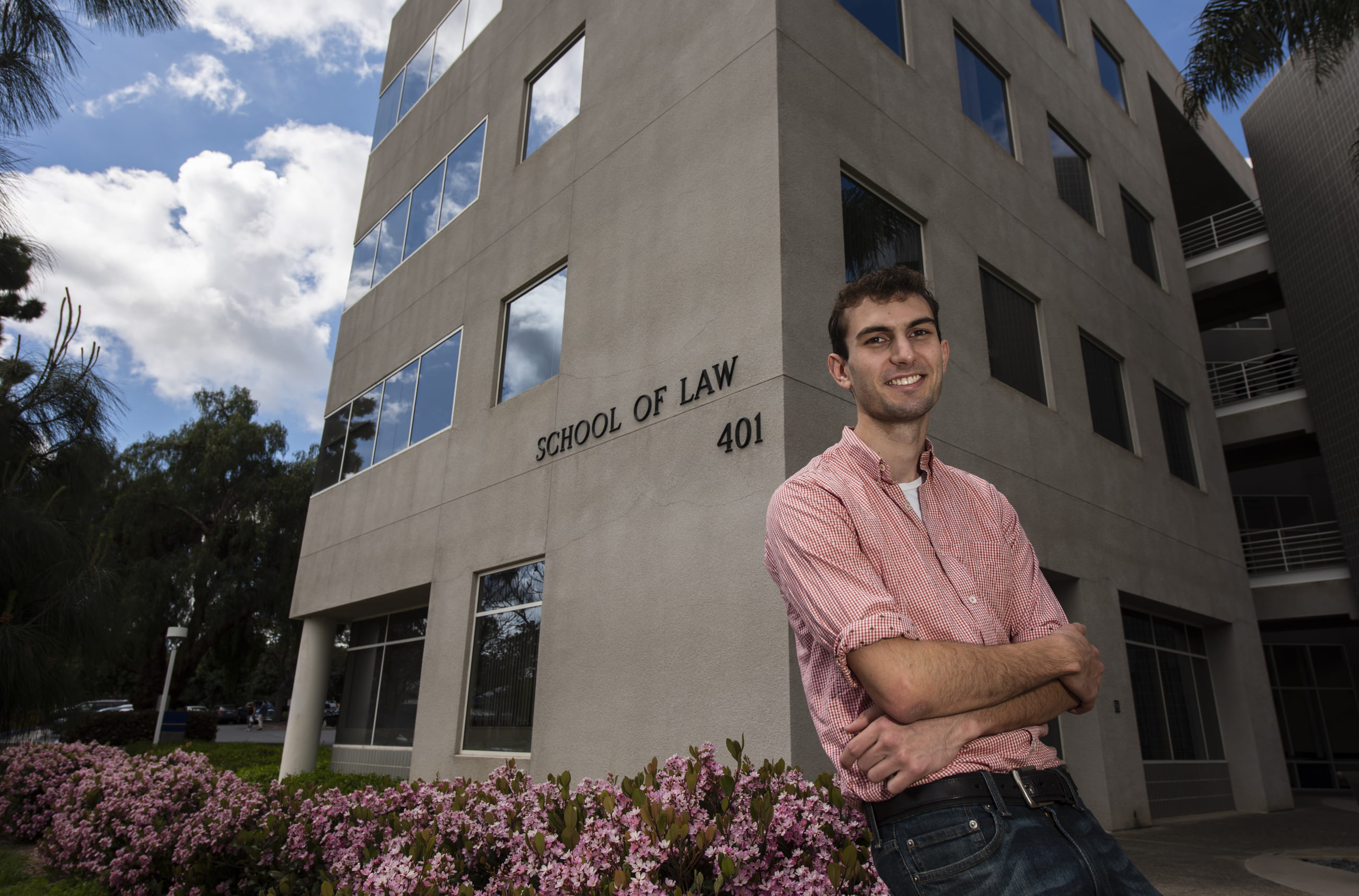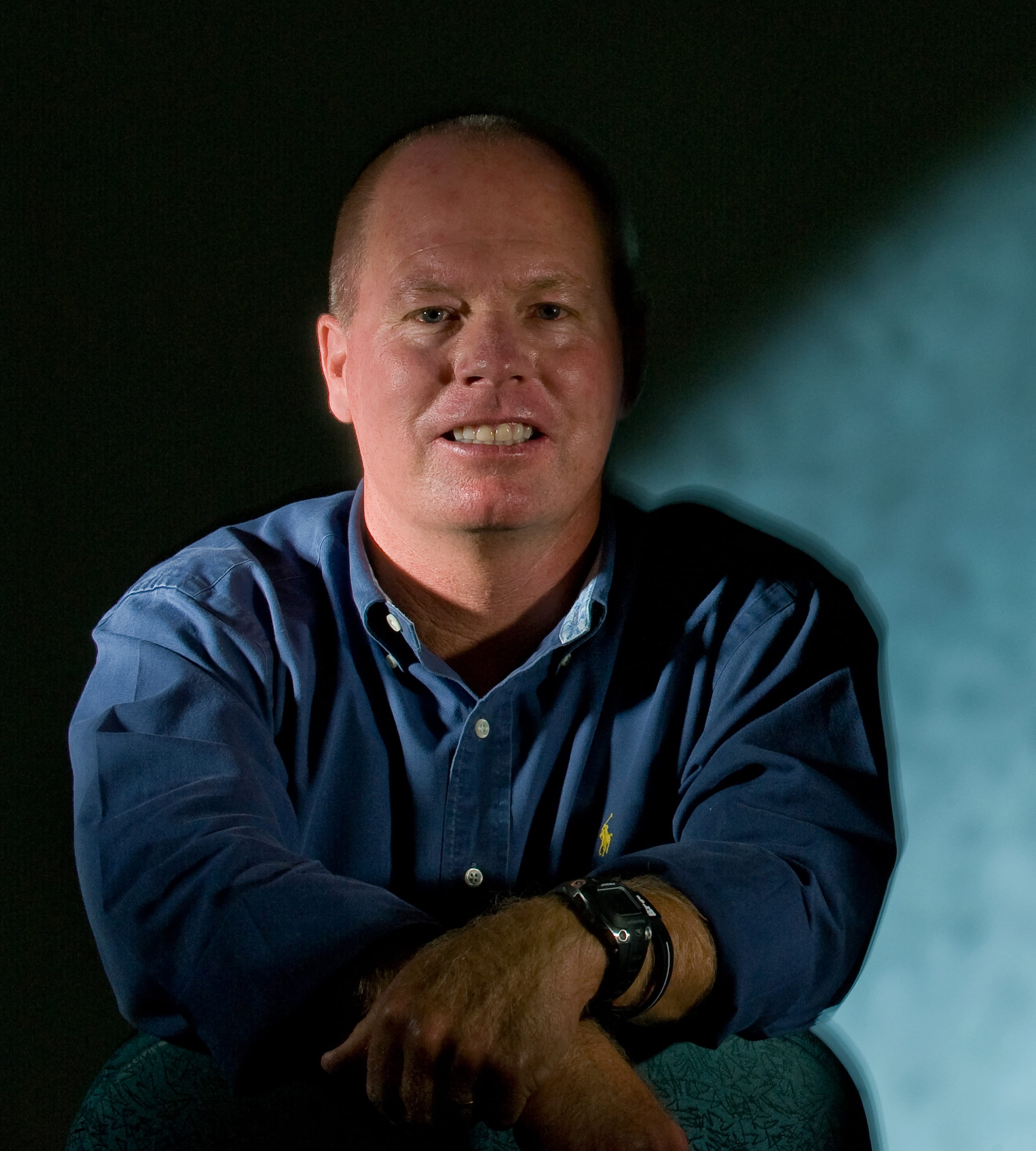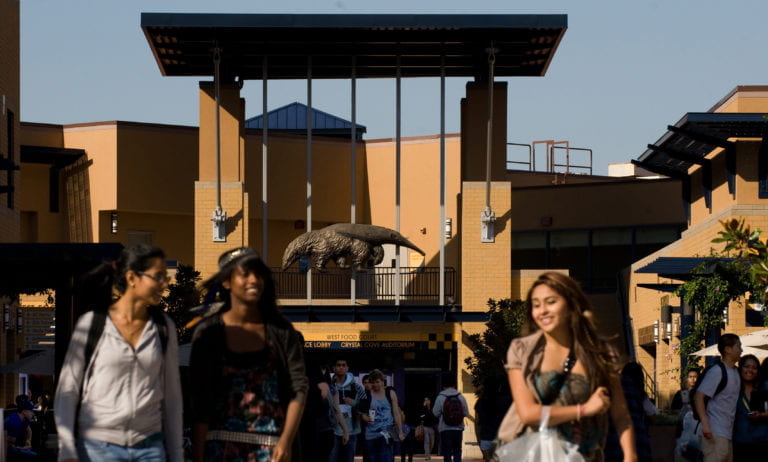A fresh look at free speech
UC conference on topical issue inspires students, such as UCI’s Henry Glitz

The University of California National Center for Free Speech & Civic Engagement’s first conference – “#SpeechMatters: The Future of Free Expression on Campus” – drew a standing-room-only crowd to hear a diverse group of renowned scholars, policymakers and opinion shapers address free speech on campus, the internet and elsewhere in society.
Organizers of the March 21 event in Washington, D.C., also hosted 32 UC students – including three from UCI – who share a passion for First Amendment issues. They gained an insider’s perspective on the future of civic discourse and engagement in American life from such difference makers as UC President Janet Napolitano; UCI Chancellor Howard Gillman; New York Times op-ed columnist Frank Bruni; and Eric Dreiband, assistant attorney general for the Department of Justice’s civil rights division.
For first-year UCI law student Henry Glitz, it was an eye-opening experience – one that has inspired him to defend free speech rights as a practicing attorney one day. Here, Glitz shares his thoughts about the conference.
Q: Why did you apply to attend the event?
A: I’ve had an interest in the topics the conference covered for a long time. I first was brought into the free speech debate working as an editor of the student paper as an undergrad at the University of Pittsburgh, and ever since, I’ve had a powerful respect for the media and journalists who continually put themselves out there and exercise their First Amendment rights for the good of society. So I have a personal interest in the topics of discussion, and I was also attracted by some of the big names in journalism who were attending as well.
Q: What was your conference experience like?
A: It was a whirlwind day. We started early, talking in small student groups facilitated by free speech academics, and we discussed our perspectives as students on UC campuses. President Janet Napolitano joined us later, but mostly it was really interesting to hear about the wide variety of campus experiences. We took a little break for lunch, but then we were right back at it. In the afternoon, there were four separate panel discussions and two “lightning talks.” There were panels of journalists, administrators, tech attorneys and public servants, and each of them was just as gripping as the next. I remember thinking that the time we were sitting listening to panelists was the quickest five hours of my life.
Q: What was your highlight?
A: I’m a huge political junkie, so getting to meet and talk to former U.S. Sen. Barbara Boxer was a big moment for me. As a UCI law student, I also found it really cool to meet [UC Berkeley School of Law dean] Erwin Chemerinsky, who was founding dean of UCI’s law school more than a decade ago.
Q: Coincidently, President Donald Trump signed his college campus free speech executive order that same day. How did that influence the mood at the conference and your thoughts about being there?
A: It would be difficult to overstate the impact of the president’s executive order on the events of the day. Dean Chemerinsky devoted his 10-minute “lightning talk” specifically to the order. Eric Dreiband, who was present for one of the panel discussions, was explicitly in the position of having to defend it. With the exception of this Trump nominee, the consensus was that the order was pretty much a total miss as far as actually protecting First Amendment rights on campus.
I think the backdrop of the executive order being issued the same day mostly highlighted the distinction between free speech as a constitutional and social principle versus “free speech” as a weaponized term used by a particular political movement to justify unacceptable behavior. I think the low regard younger people currently have for free speech can be attributed to the fact that it’s almost exclusively associated today with a reactionary segment of the political right. As someone who generally identifies as politically center-left, I think there is much to be said for people on other parts of the political spectrum reclaiming the narrative of free speech.
Q: What did you learn at the conference that you’ll carry into your future at UCI and your career?
A: I think the tech-focused panel probably gave me the most new information to mull over. Facebook and Twitter are the venues for so many of the free speech controversies happening in 2019, and both had their top lawyers speaking at the event. While I was very impressed with each attorney individually, I think one of the biggest things I got out of hearing them speak was the realization that these companies hold an enormous social responsibility, and sometimes they don’t or can’t live up to that responsibility. It was most interesting to think about that fact in relation to how the First Amendment, which only covers government encroachment on free speech, really is not enough on its own to handle today’s free speech issues.
Q: If the First Amendment isn’t enough, what else do you feel is needed?
A: I think responsible speech can – and undoubtedly will – be a powerful means to help address some of the problems on campuses today, but I also recognize that this alone will probably not be enough. I think online platforms could voluntarily shoulder a greater portion of the responsibility for individuals using their services irresponsibly. I also favor greater support for research, including government-funded research, to better document and address the genesis and growth of dangerous speech online. Neither of these improvements would infringe on First Amendment rights, and both would leave open the possibility of stronger action further down the line.
Q: Will free speech issues be a focus of your post-academic career and life?
A: My goal is to end up working in media law, either in-house at a media outlet or for a law firm specializing in these kinds of issues, and help protect First Amendment rights.


